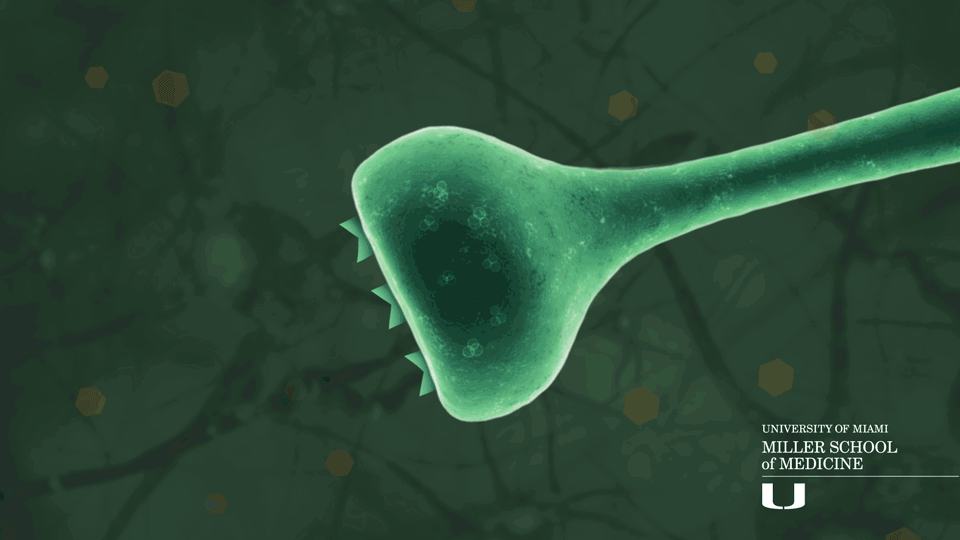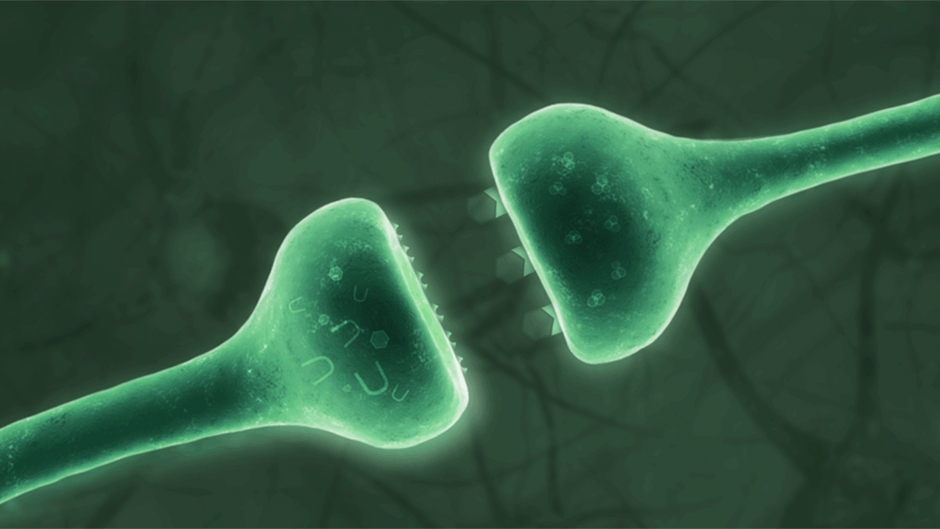The goal of finding a treatment for concussion may be one step closer due to a new study being launched by University of Miami researchers. As part of a $16 million research grant from Scythian Biosciences, researchers at the university’s The Miami Project to Cure Paralysis and Miller School of Medicine will begin studying whether a simple pill could someday be a solution to the growing concussion epidemic.
A multi-disciplinary team of researchers from neurology, neurological surgery and otolaryngology will embark on this five-year study to address the effects of combining CBD (a cannabinoid derivative of hemp), and an NMDA antagonist for the treatment of traumatic brain injury (TBI) and concussion. Researchers believe the combination could reduce post-injury brain cell inflammation, headache, pain and other symptoms associated with concussion.

Traumatic brain injury is a major cause of death and disability in the United States, contributing to about 30 percent of all injury deaths and impacting approximately two million children and teenagers annually, according to the Centers for Disease Control and Prevention.
There have been some 345,000 diagnosed cases among U.S. Armed Forces members since 2000, and professional and amateur football and hockey players, as well as other athletes, continue to be plagued at alarming rates. Most of these individuals face short-term effects such as headaches and dizziness, while others are at increased risk for longer-term chronic medical problems, including disorders of attention, memory, anxiety, depression and dementia.
While the prevalence of TBI, which includes concussion, is on the rise, research and treatment options are still very much in the early stages. The partnership between the University of Miami and the Canada-based Scythian Biosciences aims to propel this research and potential treatment forward by using two classes of drugs in a combination that scientists believe will reduce brain inflammation and the immune response. Researchers hypothesize that this unique CBD and NMDA antagonist compound will impact the CB2 and NMDA cell receptors, reversing the effects of concussion through a reduction of immune response decreasing brain inflammation.
“The acute and chronic effects of mild TBI and concussion are well documented, but poorly understood,” said W. Dalton Dietrich, Ph.D., scientific director of The Miami Project and professor of neurological surgery at the Miller School. “We face a number of major obstacles, such as clinically relevant models that address the complex pathophysiology of circuit dysfunction and recovery mechanisms associated with TBI. The testing of novel compounds, including this approach using the cannabinoid/NMDA antagonist combination, are needed to treat cognitive and emotional consequences of single and repetitive brain injuries.”
This project will require close collaboration between the pre-clinical and clinical investigators, and will be completed in three phases.
In years one and two of the study, researchers will begin pre-clinical studies evaluating several rodent models of TBI. In parallel, nine proposed outcome fields, which include cognitive, behavioral, psychosocial, sleep, pain, sensorimotor, cardiovascular, inflammatory biomarkers, as well as neuroimaging studies, will be reviewed and evaluated. During this time the research team will address any shortcomings in methodology. Once data comes back conclusive, they will enter year two and phase two of the study.
Phase two will involve a small human pilot study, likely administering the compounds in pill form to a control group and two groups of TBI patients, acute and chronic. Researchers will use the nine outcome measures listed above to evaluate the drug’s efficacy. Once completed, data will be analyzed and any safety concerns will be addressed.
If deemed safe and effective, the third phase of the research will begin a fully powered clinical trial over the next three years. With FDA oversight, data will reveal whether the compound is an effective therapeutic treatment for those suffering from different severities of TBI and concussion.
“The implications for the study are extraordinary,” said Michael Hoffer, M.D., professor of otolaryngology at the Miller School of Medicine. “To have such a large team of multidisciplinary neuroscience experts attaching themselves to research that could change the outcome of TBI and concussion care is the opportunity researchers have been looking for to curb the growing trend of concussion.”
The study will be led by Gillian Hotz, Ph.D., research professor of neurological surgery, director of the KIDZ Neuroscience Center at The Miami Project to Cure Paralysis and director of the concussion program at University of Miami Health System Sports Medicine.
“Throughout the course of my career, my team and I have developed a national model. Our concussion protocol includes education and training for medical students, residents, fellows and certified athletic trainers in an effort to provide a solution to the growing concern of managing concussions in youth, high school, collegiate and professional sports athletes,” said Hotz. “One thing has eluded us – a clinically proven medication to treat concussion. Whether or not this study leads to a pill that could treat concussion, this type of research will pave the way for UM and other researchers to better manage concussion. It’s a privilege to help lead this journey.”
“Dr. Hotz is the ideal principal investigator for this important study because she has been at the forefront of TBI and concussion research, and has already developed a national model countywide concussion program along with a comprehensive assessment and treatment program,” said Barth Green, M.D., chairman of The Miami Project and professor of neurological surgery.
Scythian Biosciences said choosing to partner with the University of Miami Miller School of Medicine and fund the $16 million research was an easy decision because of UM’s reputation as the nation’s leading neuroscience center with expertise in TBI and concussion research.
“Our collaboration with UM will allow us to access their extensive knowledge base in the fields of neuroscience, traumatic brain injury and concussion, and will allow for our pre-clinical and clinical studies to be carried out at their world-class facilities,” said Jonathan Gilbert, CEO of Scythian Biosciences. “Our mission is to develop and implement the first accepted drug regimen for the treatment of concussions.”
The UM and Scythian research study is kicking off with pre-clinical work directed by Dietrich, Hoffer and Helen Bramlett, Ph.D., professor of neurological surgery. Translational and clinical research will be directed by Bonnie Levin, Ph.D., director of neuropsychology and professor of neurology, and a team of neuro-outcome experts.
“This is our chance to explore a therapeutic pill for the treatment of concussion,” said Hotz. “The scientific community and public know the risks associated with TBI, and because of the funding graciously provided by Scythian, we will soon know more about how the brain can respond to compounds that include cannabinoids designed to treat concussion. We can only hope that our hypotheses and trials lead us to the ending we all desire – a simple pill to treat concussion.”

